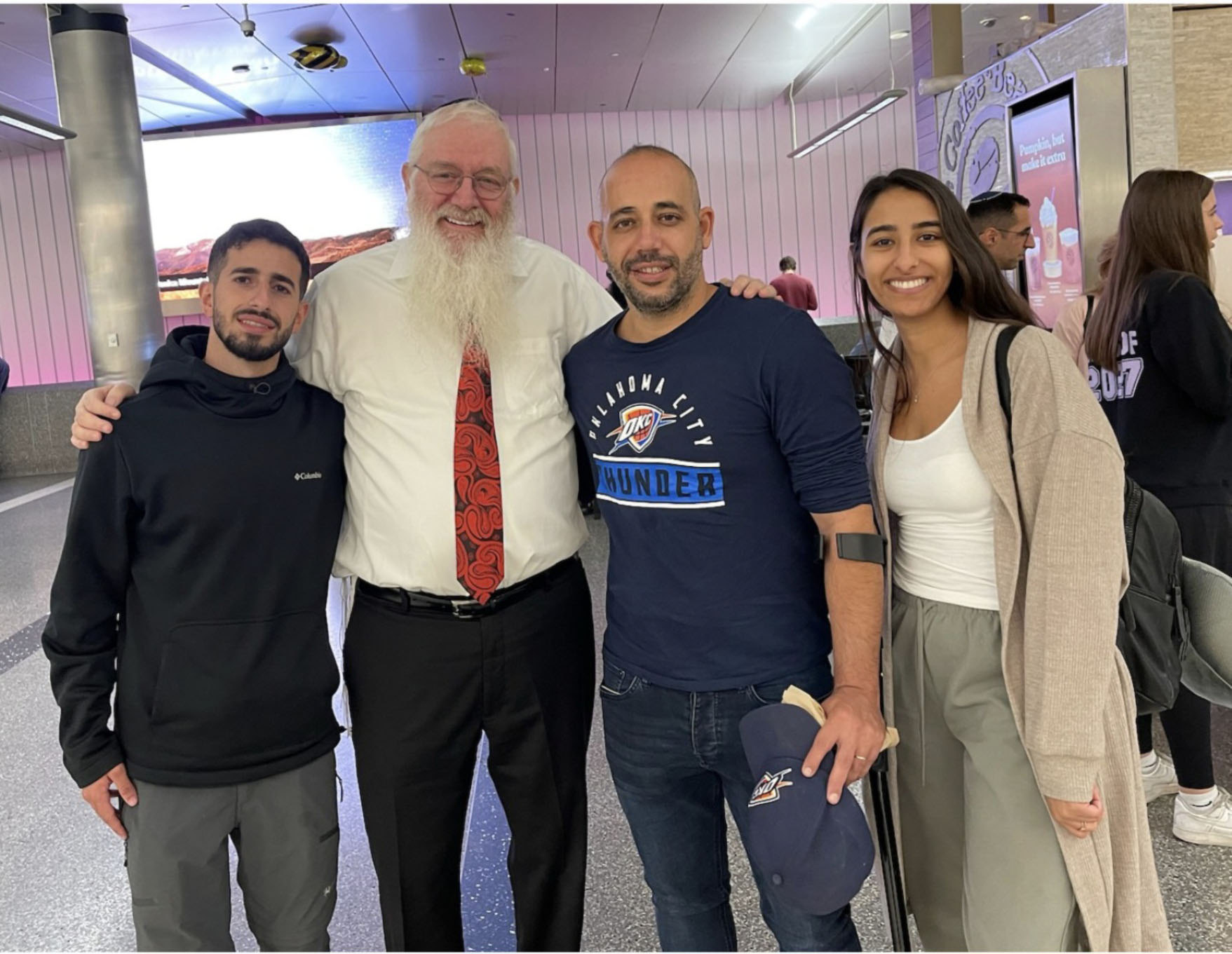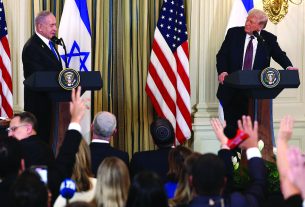Rabbi Chaim Mentz of Chabad of Bel Air traveled to Israel twice after Oct. 7 to show support. On one of his trips, he donated 5,400 NIS (approximately $1,450 U.S. dollars) to 36 young widows. He also visited Beit Halochem hospital, where he witnessed hundreds of wounded soldiers, many in their 20s and facing life-altering injuries, receiving treatment.
“I asked one of the doctors what we can do in America besides just sending money and he said, ‘R and R: Rest and Relaxation.’ I said, ‘I’m not a psychiatrist or psychologist. What do I do?’ And the doctor replied, ‘I’m not a psychiatrist either. Figure it out.’”
On his way back to Los Angeles, Mentz considered the advice and devised a plan: Why not bring the soldiers to L.A., giving them an opportunity to forget about the war and enjoy life?
“I went to my community and said, ‘We can send all the helmets we want, but if these people are emotionally hurting, they won’t be good parents tomorrow. We need to ensure they have healthy families,’” Mentz said. “Yes, we need to support the hospitals and send helmets, but we also need to help them relieve their stress.”
“We need to support the hospitals and send helmets, but we also need to help them relieve their stress.” – Rabbi Chaim Mentz
The congregation responded enthusiastically. When Mentz suggested funding the trip by selling Torah covers, it took just 90 seconds to sell five, raising $25,000. It was Rosh Hashanah, and the plan was to bring the soldiers to L.A. in time for Simchat Torah, which was only 18 days away.
“I said, ‘I want you to dance with them, lift them up on chairs and make them feel like a million bucks,’” said Mentz.
Soon, the entire congregation began offering activities: Trips to Universal Studios, Warner Brother Studios, spa days and more. Adina Finn of Encino coordinated with Beit Halochem hospital to arrange the arrival of three soldiers, Amitai Cohen, 22, Israel Ben Shitrit, 39 and Michal Padlad, 27.
All three had sustained severe injuries during the war. Ben Shitrit was injured on March 31 in Khan Younis, Gaza when a rocket struck a house, killing two IDF soldiers. “We were tasked with reaching the location where the rocket was launched,” he said. “As I exited one house, I saw an RPG heading toward me. I told myself, ‘This is it. This is the end.’”
Ben Shitrit fell unconscious. When he came to a minute later, he realized he was hurt. His leg was bleeding profusely. “I tried to hide, but they saw me moving and shot me with an AK-47,” he said. “I told myself my mission was to save my soldiers, so I started crawling to another house. I began rescuing my friends, but they shot at us again. Sadly, one soldier died in my arms.”
The father of five spent three and a half months in the hospital and initially couldn’t walk. Now, he uses a cane and faces a long rehabilitation process. His vision was also affected by nerve damage, but he remains hopeful it will improve. “It is amazing being here,” he said. “It’s been two weeks and it’s stress-free to not hear news about the war and just live a normal life.”
The group visited Universal Studios and saw the WaterWorld show, famous for its loud special effects, including gunfire and explosions. Despite the noise, they remained relaxed and enjoyed the show with no signs of PTSD, which usually affects many soldiers after battles.
Padlad, another one of the visiting IDF soldiers, is one of the few female soldiers in a combat unit. Her role involved managing the supply chain and ensuring the unit had everything it needed. In August, during an operation, she was injured and spent nearly three months in the hospital before being released to join the trip. It’s important to her that people recognize that there are female warriors who are just as brave and, like their male counterparts, got injured during this war.
In a Zoom interview, she shared how much the experience meant to her. “The Bel Air community was simply amazing,” she said. “I felt their warmth the moment I arrived. They helped with our healing, took us out for fun activities and helped us clear our heads. To be honest, I cried the whole way to the Ben Gurion Airport because I didn’t want to come. I thought it would be too hard and I was scared. But the minute we arrived, we were greeted with such a big hug from the rabbi and the entire community. I didn’t expect that at all.”
Padlad, Cohen and Ben Shitrit were treated like royalty. They enjoyed a helicopter ride, visited the Santa Monica Pier and Disneyland and went shopping. They were surprised with a private Pilates class from a Muslim woman who heard about their visit and wanted to show her support.
“We even crashed a million-dollar bar mitzvah,” Mentz said. “It was in the backyard of a mansion in Beverly Hills. I said we’d stop for just a few minutes, but I knew what would happen once the guests learned who they were.” Sure enough, the bar mitzvah hosts and guests warmly welcomed the soldiers and wouldn’t let them leave. “They felt so much love, which was exactly my intention: To help them forget the war and everything they had endured and simply have fun,” the rabbi said.
Mentz accompanied the soldiers every day, making sure they were having fun and had everything they needed. “I had more fun than they did,” he said. “I became a 19-year-old again.”
After their visit in L.A., the rabbi took the soldiers to New York, where they continued their trip before returning to Israel. Witnessing the positive impact of the trip on the three soldiers, Mentz said he would, God willing, arrange another trip for a new group.




